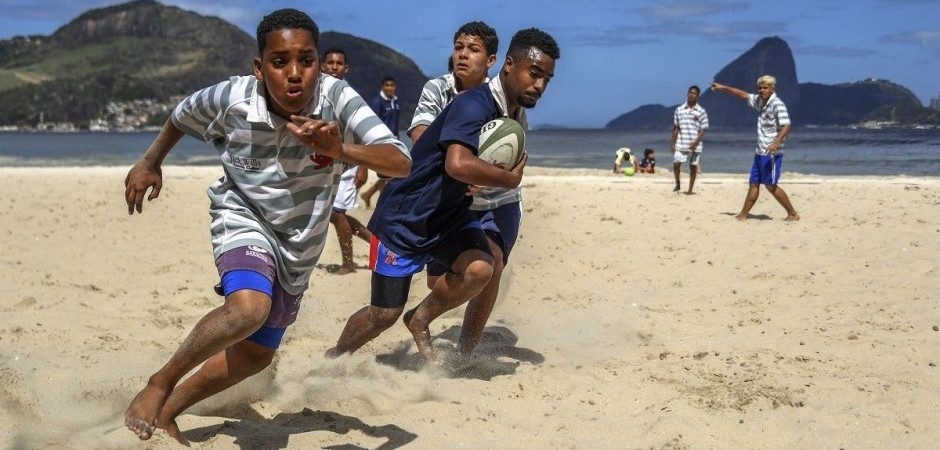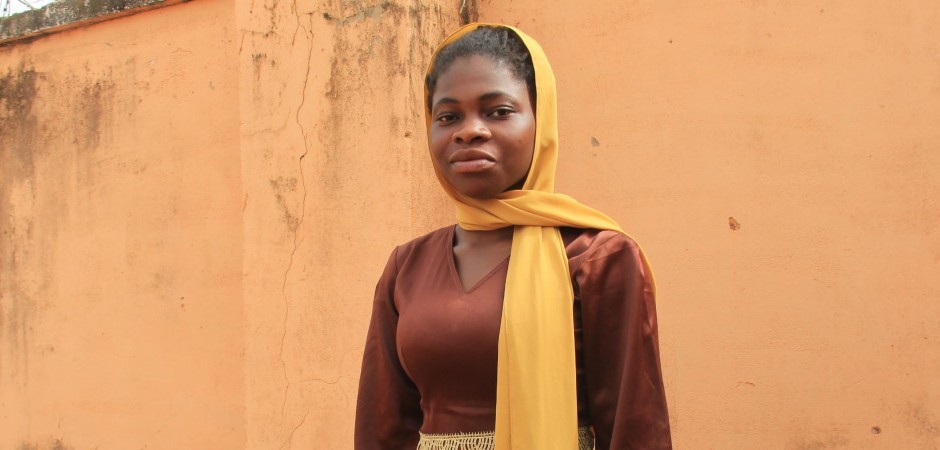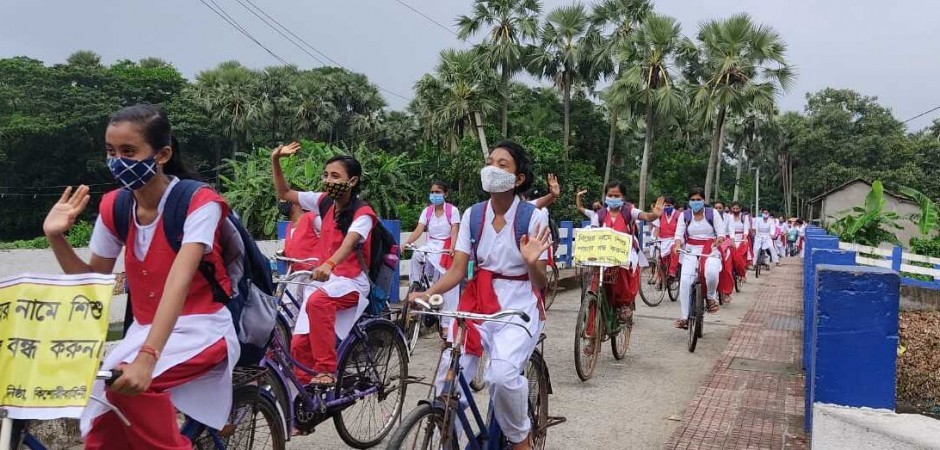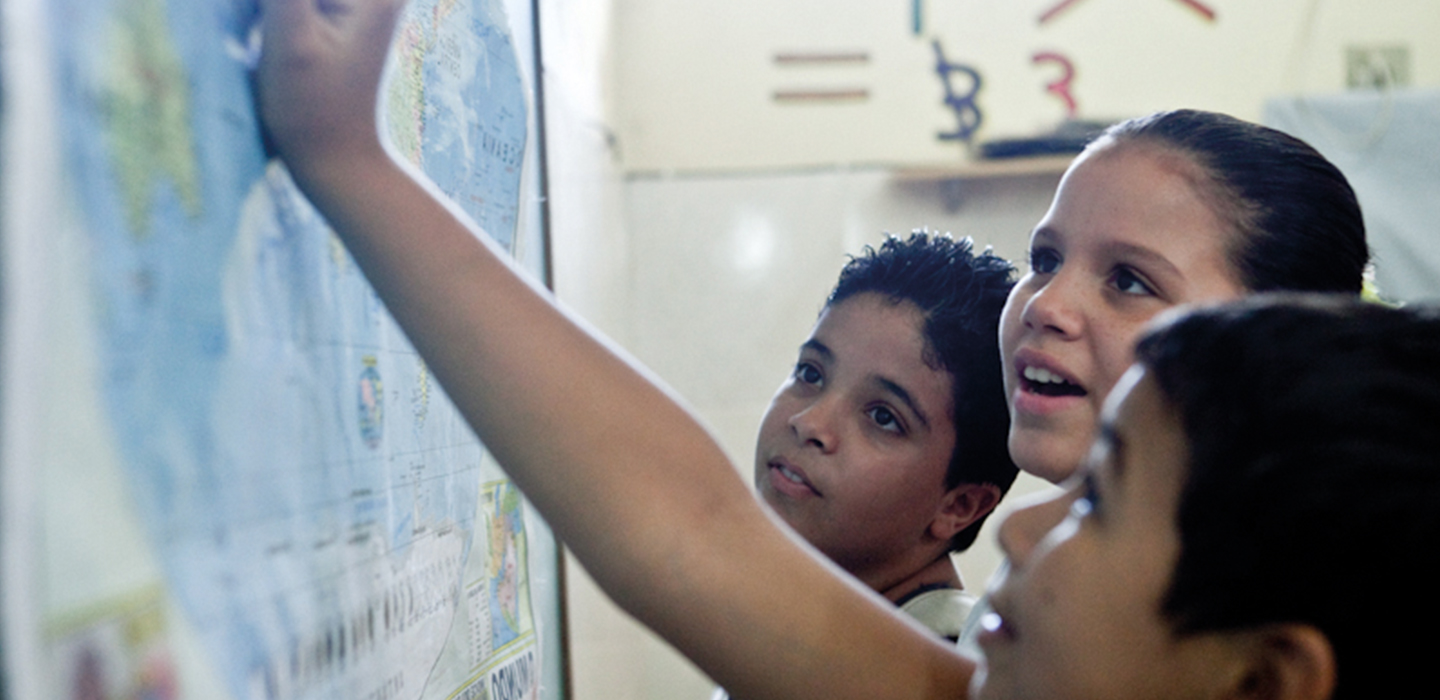Stories of Change: From the Rugby Field to the Classroom
How One Partner’s Learnings from the Community Guides its Approach


Though a recent grantee partner of EMpower’s, UmRio has always had deep ties to the community in which it works. British Brazilian Robert Malengreau launched the organisation in 2013 with colleagues from Oxford University Rugby Club, aiming to use the sport to get kids off the streets and away from the violent drug gangs that had a hold in some of Rio’s toughest favelas. Over time—and by talking to young people, local education leaders, and others—they began to see how much more they could do. Rugby, not traditionally played in Brazil, could be the entry point to getting young people to stay in school and eventually improve their prospects for a better life. Participating in the sport can be powerfulfor those who feel alienated from others—boosting their sense of self-worth, enhancing their life skills, and equipping them to succeed in the classroom.
Over the years, UmRio increased its focus on education—partnering with the local public school. And collecting data was always a big part of their joint approach. Over the last several years, they have measured improvements in school retention and students’ abilities in subjects like Portuguese, English, and math. To manage and rebound from the COVID-19 pandemic, these assessments and regular communication with the community became crucial.
UmRio conducted surveys at the end of 2021, which did not paint a positive picture for education in the area. Brazil experienced one of the longest periods of school closure in the world. In the favela where UmRio operates, only 15% of students participated in remote classes during the pandemic. UmRio’s analysis indicated that school dropout rates and truancy in the region would remain high and continue in 2022. In speaking with young people, they found their mental health was also suffering. With the economy in free-fall, young people felt even more financial and domestic burdens, which made it more likely they would abandon their studies.
In response, UmRio decided to serve its youth in a more holistic way and reshaped its programme. In 2022, they expanded their in-person activities, while maintaining their remote platforms. They recognised that, most of all, young people needed more interaction and to rebuild their relationship with school and learning. UmRio also began offering more social support services, like home visits and mental health counselling, to address the trauma and abuse many young people had experienced. This is now an important pillar of their work.
By listening to young people, parents, educators, and others, UmRio has been able to evolve and better meet the needs of those who used to go unheard. Their programmes are even more inclusive of girls. Thus far, they have inspired more than 2000 young people to stay in school, and they are expanding and working with other school districts. They have affirmed that partnership and shared understanding is essential, on the rugby field and off.
More Stories of Change

Celebrating 10 Years of Girl Power
Anchored in the principles of individual agency and collective action, the Adolescent Girls Learning Community nurtures and empowers girls as leaders in India.
Read More about the Learning Community

From Gang Member to Police Officer
"I hope that one day I can pay back the people who have helped me, by helping other youth in return."
Read Ericson's Story

Pushing Boundaries in Rural Ghana
A young woman breaks gender barriers in farming and the new economy.
Read Hawa's Story

Championing Peace and Scaling Change in Rio de Janeiro
Alan Duarte shares his story and speaks about the motivation behind starting his own organisation called Abraço Campeão (Champion Embrace) in Rio de Janeiro.
Read Alan's Story
A BRAVE Leader Speaks Out
Miche Williams pens a moving piece about her experiences at South African girls' organisation BRAVE.
Read Miche William's piece

Girls Leading the Way Out of COVID
Cyclone Yaas brought widespread destruction to the coastal region of West Bengal, India earlier this year. Girl leaders, who had been trained and mentored by a former EMpower grantee partner, Nishtha, some years ago, proved key to the local response.
Read Nishtha's Story
